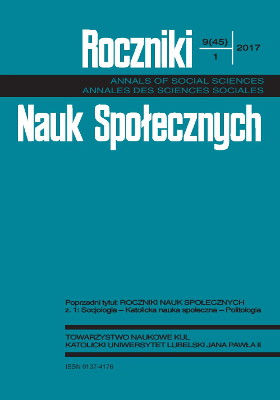Budowa przemysłu zbrojeniowego II Rzeczypospolitej oglądana poprzez pryzmat biografii Jana Prota (1891-1957)
Building of War Industry in Poland in the Interwar Period Through the Prism of Jan Prot's Biography (1891-1957)
Author(s): Marek WierzbickiSubject(s): Politics / Political Sciences, Politics, Security and defense, Politics of History/Memory
Published by: Towarzystwo Naukowe KUL & Katolicki Uniwersytet Lubelski Jana Pawła II
Keywords: Jan Prot; independence; IInd Polish Republic; war industry
Summary/Abstract: The article presents the process of building of war industry in Poland in the interwar period through the prism of Jan Prot's biography – a Polish independence activist who was a member of the Piłsudski political camp. He was also one of the most significant economic activists of the Sanacja camp even though did not belong to the milieu of its first-rank leaders. As an adolescent Prot entered the Polish independence camp led by Józef Piłsudski. As an officer of the Polish Legions and then the Polish Armed Forces he took part in the struggle for independence and frontiers of the Polish state. After the end of the war he left the army and continued university studies in the field of chemistry, which were finalized with a PhD dissertation in non-organic chemistry in 1924. From 1927 he worked as the Central Executive Manager of the State Gunpowder Factory (PWP) in Zagożdżon-Pionki where he expanded both the factory and a settlement built around it. With time the PWP plant became the largest gunpowder and explosives factory in Poland as well as one of the biggest factories of that kind in Europe. It successfully attended the creation of the Central Military District (COP) which was the greatest economic project of the interwar Poland. In September 1939, the outbreak of WWII made Prot and most of his subordinates evacuate PWP to the east in the hope to resume military production in a safe place. The Soviet aggression against Poland made those plans futile which led to Prot's involvement in clandestine fight against the German occupiers. Soon after, on the order of the underground organization called the Union of Armed Struggle he left for France and then Great Britain where he died as a political emigrant in 1957. He paid great merit in the process of building of the Polish war industry during the Polish IInd Republic despite the fact the outbreak of WWII interrupted it.
Journal: Roczniki Nauk Społecznych
- Issue Year: 45/2017
- Issue No: 1
- Page Range: 137-148
- Page Count: 12
- Language: Polish

